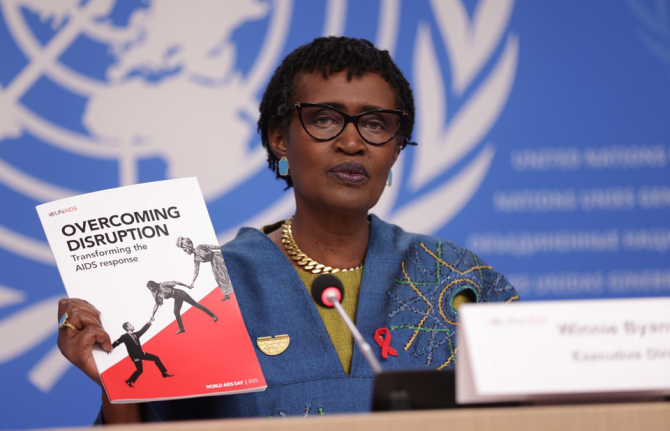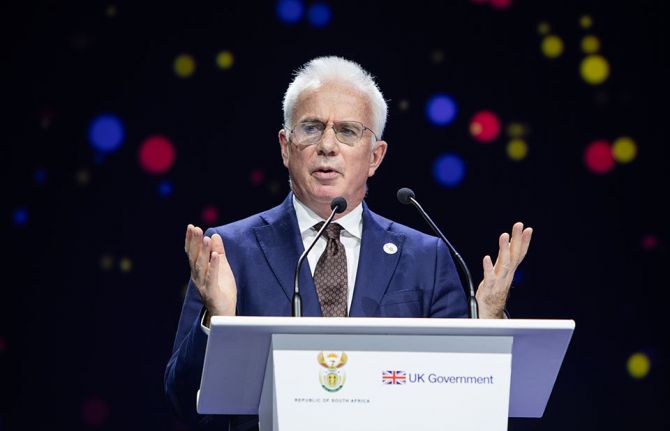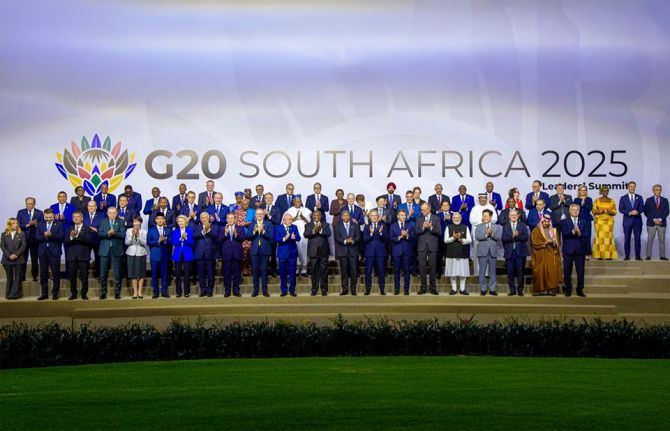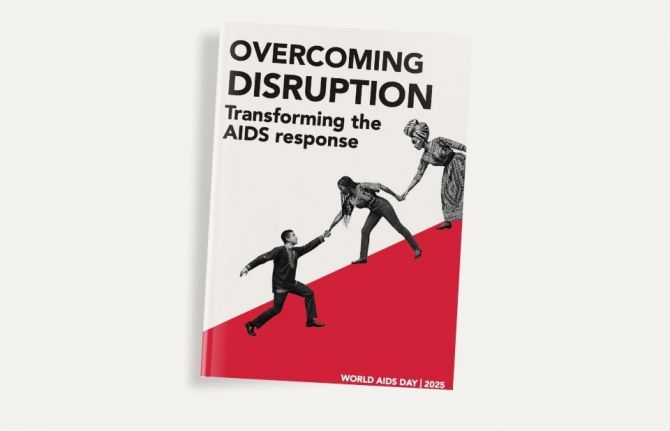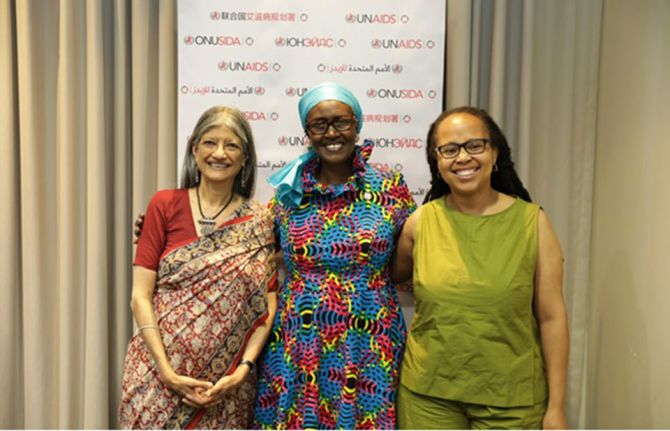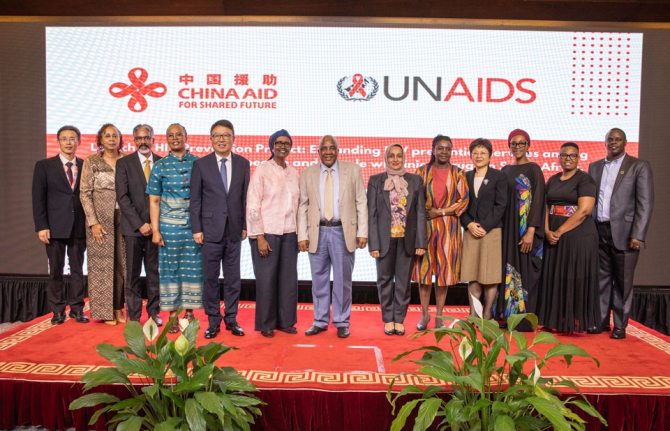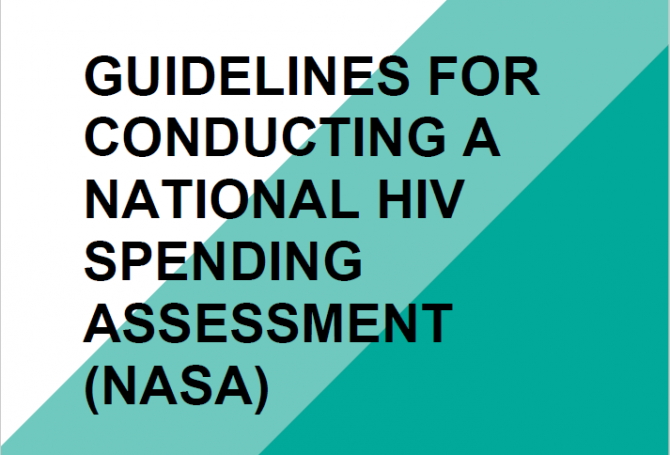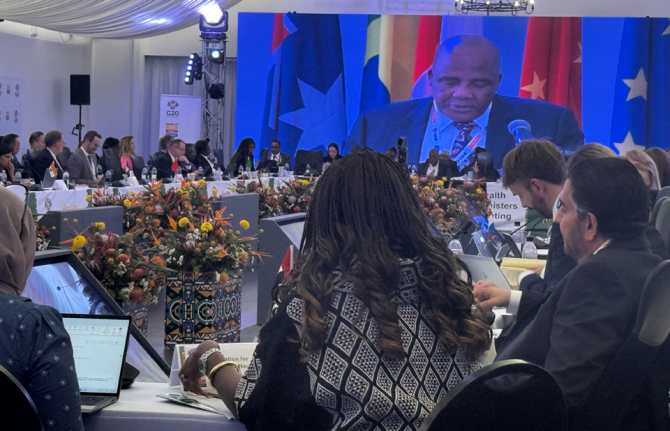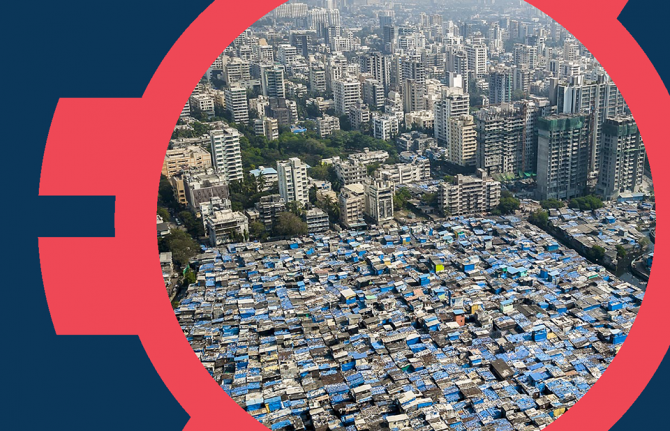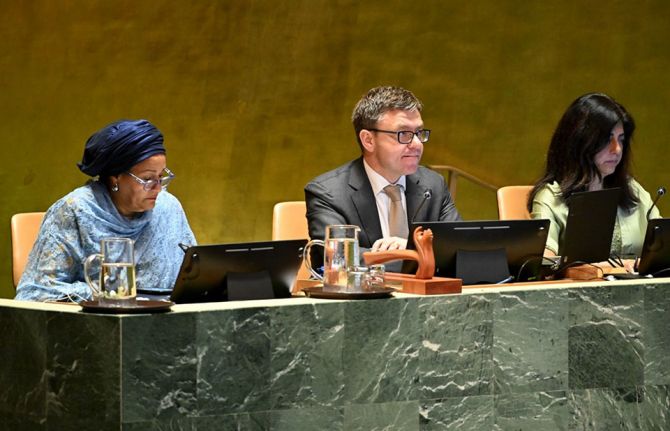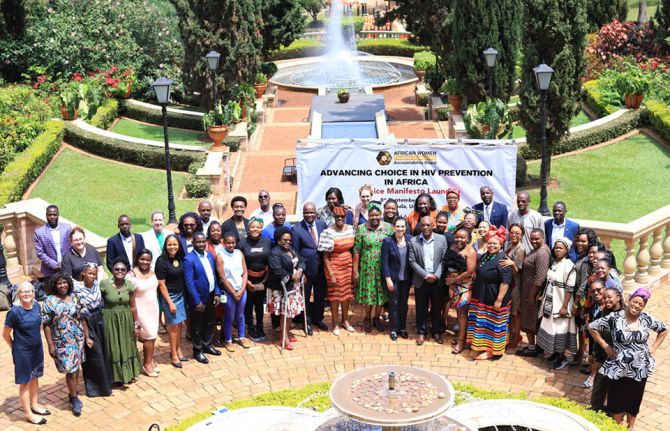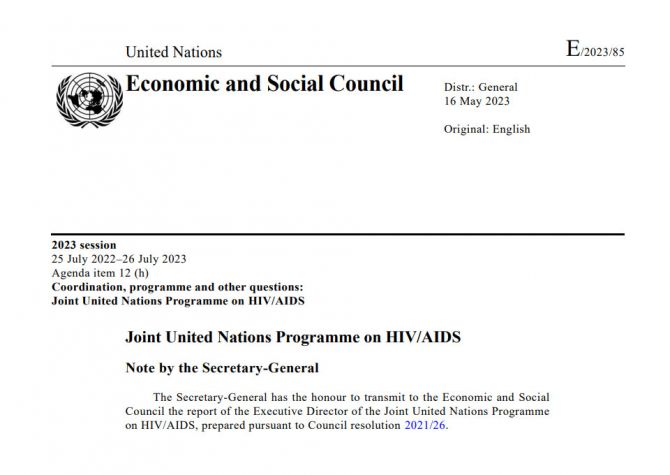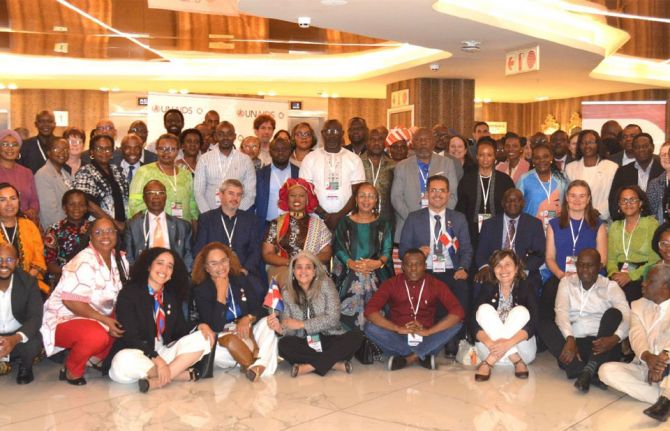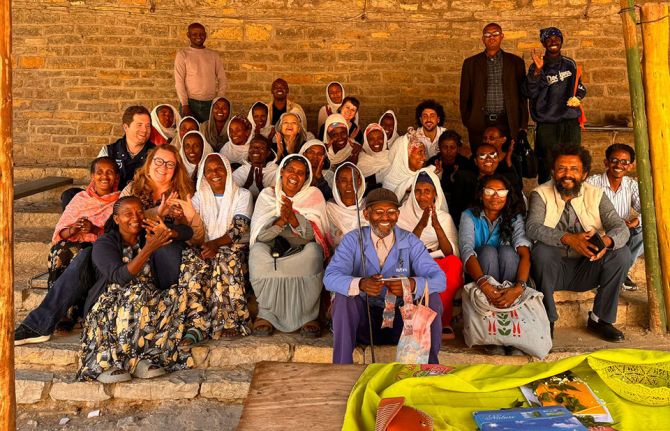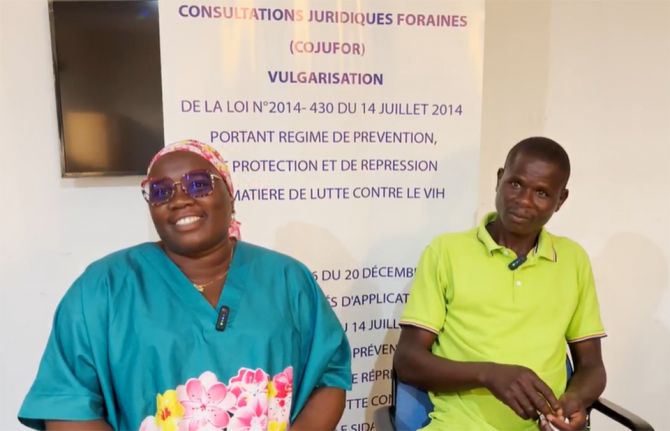
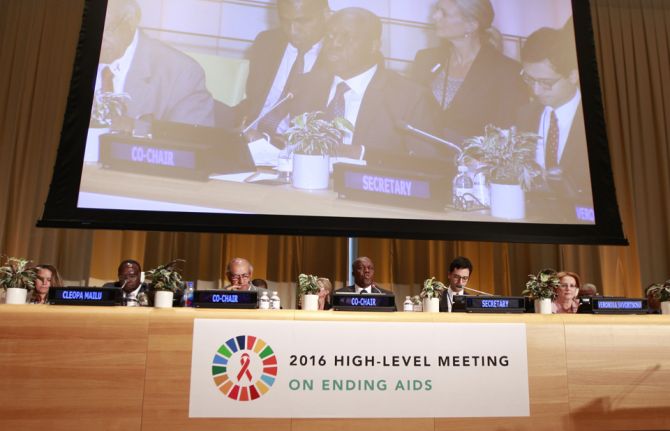
Update
AIDS and the sustainable development agenda: interdependent, inextricably linked
09 June 2016
09 June 2016 09 June 2016Efforts to end the AIDS epidemic and achieve the Sustainable Development Goals (SDGs) are closely linked and can lead to a wider, people-centred social transformation, argued a panel at the United Nations General Assembly High-Level Meeting on Ending AIDS, taking place in New York, United States of America, from 8 to 10 June. The panel meeting, entitled, “AIDS within the Sustainable Development Goals: leveraging the end of AIDS for social transformation and sustainable development,” was held on 8 June.
A number of participants noted that the lessons learned from the successes of the AIDS response at the national and global levels act as a pathfinder for the 2030 Agenda for Sustainable Development (Agenda 2030), adopted by United Nations Member States in 2015. This response has shown that working in a multisectoral way, with a range of partners and with an eye to challenging social, economic and gender inequalities using rights-based approaches, can lead to both health and development gains.
In setting out a Fast-Track approach to end AIDS, the UNAIDS 2016–2021 Strategy firmly acknowledges the need to root the HIV response in Agenda 2030, recognizing the interdependence between HIV and the SDGs, from ending poverty (SDG 1) to promoting inclusive societies (SDG 16) and strengthening partnerships (SDG 17).
During her remarks, the Russian Minister of Health, Veronika Skvortsova, committed to removing all remaining restrictions related to the travel, stay and entry of foreign citizens living with HIV in the Russian Federation.
The panel members set out concrete examples of how the AIDS response could help to influence the profound structural, social and economic changes needed to end AIDS and make the SDGs a reality: by promoting accountability, through grassroots alliances with communities acting as agents of change and by challenging inequality, stigma and marginalization and leaving no one behind.
The panel discussion generated a sense of urgency as well as momentum and opportunity to implement the Fast-Track approach in synergy and convergence with Agenda 2030, towards greater inclusion, social justice and stability across societies.
Quotes
“We must seize the opportunity of the Sustainable Development Goals (SDGs) to change the course of our planet and our humanity. The SDGs weave together environmental, social and economic well-being into a single, integrated global framework. They provide stepping stones to deepen and strengthen our efforts to end the AIDS epidemic.”
“I urge all of you to seize the opportunity to strengthen our efforts against AIDS by leveraging the synergies presented by the Sustainable Development Goals. Together, let us make the journey to end AIDS a journey of social transformation.”
“Today we have almost eliminated HIV transmission among people who use drugs through a comprehensive harm reduction programme. This was only possible through collaboration between health and police officers and through the inclusion of civil society.”
The Sustainable Development Goals provide a key opportunity to address the structural drivers that underlie the HIV epidemic. Ending AIDS is a feminist issue, giving young women and girls access to sexual health and rights education and services is integral to a sustainable HIV response.”
Related

Update
International human rights experts call for putting human rights at the centre of the AIDS response
03 June 2016
03 June 2016 03 June 2016In a joint statement, several prominent International human rights experts are urging governments to seize the opportunity of the United Nations General Assembly High-Level Meeting on Ending AIDS to recommit to and ensure the full respect, protection and fulfilment of human rights in the efforts to end the AIDS epidemic by 2030.
The joint statement was signed by independent experts appointed by the Human Rights Council. In their statement, the experts acknowledge that progress made in the past decades in the AIDS response is partly due to the meaningful participation of communities. The statement says that, “Using the language and power of human rights, people living with HIV and human rights defenders have secured important legal and judicial victories against HIV-related discrimination and human rights violations.”
The experts acknowledge that people are still being left behind in the AIDS response, noting inequalities, compounded forms of discrimination, exclusion and other human rights violations.
Experts said in the statement, “Ending the AIDS epidemic in a way that leaves no one behind requires bold policies and reforms that reach out to populations that are deeply marginalized and criminalized … We have a historic opportunity not to be missed.”
The human rights experts recommended, among other things, removing punitive laws, policies and practices; preventing and addressing violence against and violations of rights of key populations; eliminating gender, HIV and key populations-related stigma and discrimination, especially in health-care, workplace and educational settings; and ensuring health services meet the right to health framework criteria of availability, accessibility, acceptability and quality, and are delivered without discrimination.
Related

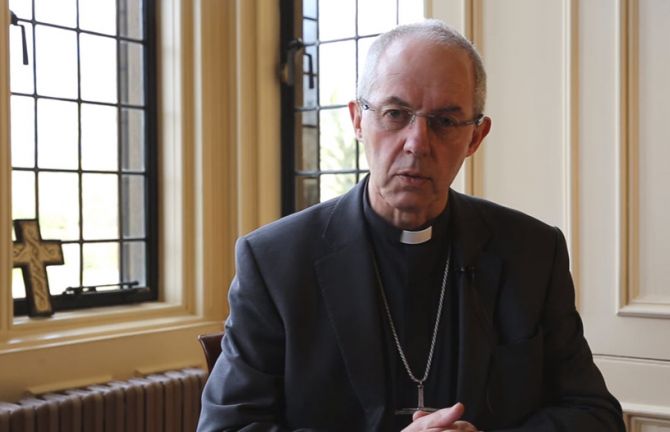
Update
World religious leaders generate additional momentum for ending AIDS by 2030
01 June 2016
01 June 2016 01 June 2016In advance of the United Nations General Assembly High-Level Meeting on Ending AIDS, Justin Welby, the Archbishop of Canterbury, released a video message entitled “Archbishop urges ‘great further step’ to end AIDS by 2030,” which was published on 18 May to help mobilize critical resources to communities most at need of HIV services. In the address, the Archbishop recognizes the great progress that has been made since the beginning of the epidemic, but pointed out that some communities are being left behind.
Six days later, on 24 May, Olav Fykse Tveit, Secretary-General of the World Council of Churches, released his own video message, entitled “World Council of Churches General-Secretary Olav Fykse Tveit’s message on interfaith action on HIV.” In the message, he says that the global community is facing a “crucial opportunity” to end AIDS by 2030, a goal he adds that is within our power.
The United Nations General Assembly High-Level Meeting on Ending AIDS will be held in New York, United States of America, from 8 to 10 June. United Nations Member States will draft a Political Declaration on Ending AIDS designed to reach the end of AIDS as a public health threat by 2030 as part of the United Nations Sustainable Development Goals.
Both messages come after a recent statement by Pope Francis, “The encyclical letter Laudato si’ and other teachings of Pope Francis: an ethical basis for efforts to Fast-Track a more effective global AIDS response.” The statement by Pope Francis, in which he calls on the world to “find the will, the technical expertise, the resources and the methods that provide access to diagnosis and treatment available to all,” was presented at two consultations held in the Vatican City in April and May hosted by Cardinal Peter Turkson, President of the Pontifical Council for Justice and Peace.
Quotes
“This is the time to make a great further step mobilizing the political, the financial, the technical and the clinical resources through communities around the world to challenge AIDS afresh, to drive it from the news and to release communities from the fear that hangs over them in so many ways.”
“None of us should be alone. As we struggle with these challenges, we need to live and act together as a fellowship able to support and guide each other as fellow pilgrims in this journey. The global AIDS epidemic has taught us that we must do all what we can and that our part is not finished as long as somebody is left behind.”
Related


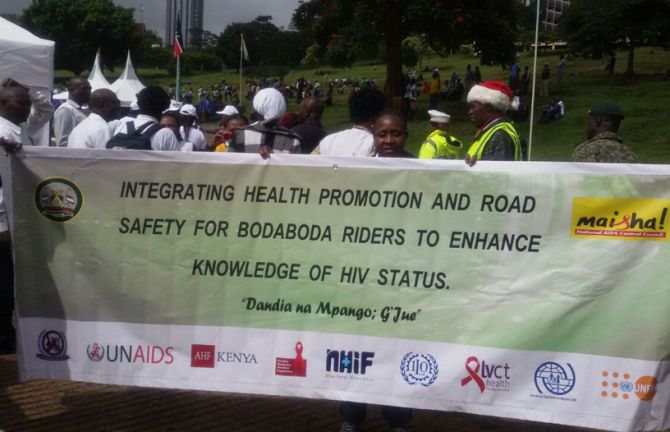
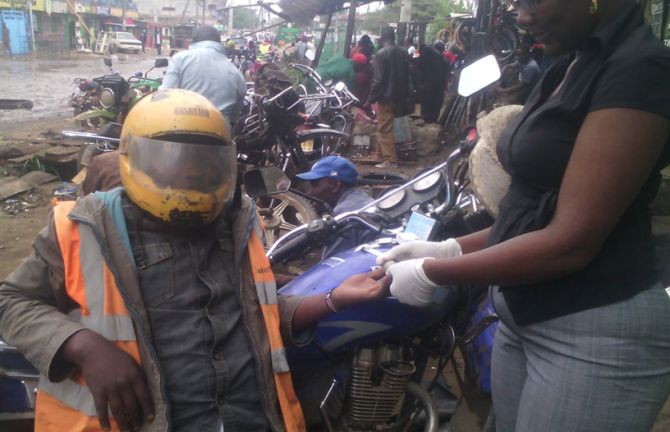
Update
HIV testing campaign reaches thousands of motorcycle taxi drivers in Nairobi
01 June 2016
01 June 2016 01 June 2016The drivers of the motorcycle taxis that transport passengers and goods in Nairobi, Kenya, are predominantly young people, who are at higher risk of HIV infection. To reach out to them, the Nairobi City County, UNAIDS and other partners recently teamed up to promote HIV testing.
More than 10 200 taxi drivers were tested for HIV during the campaign, which ran from 1 to 10 May 2016. Supported by the National AIDS Control Council, the campaign called on the young drivers to know their HIV status. Information on HIV was shared with the drivers and their customers and counselling services were made available. The 81 drivers who were diagnosed with HIV were linked to life-saving antiretroviral treatment.
UNAIDS estimates released on 31 May indicate that, after South Africa, Kenya has the largest treatment programme in Africa, with nearly 900 000 people on treatment at the end of 2015.
Region/country

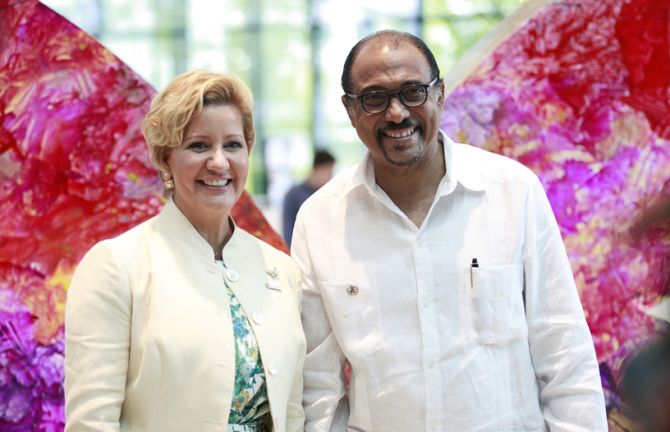
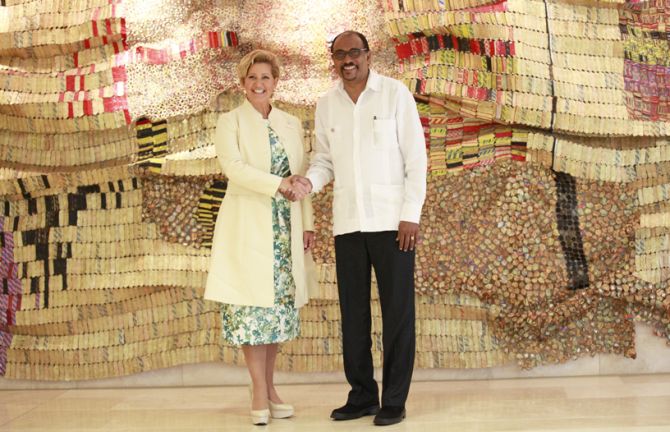
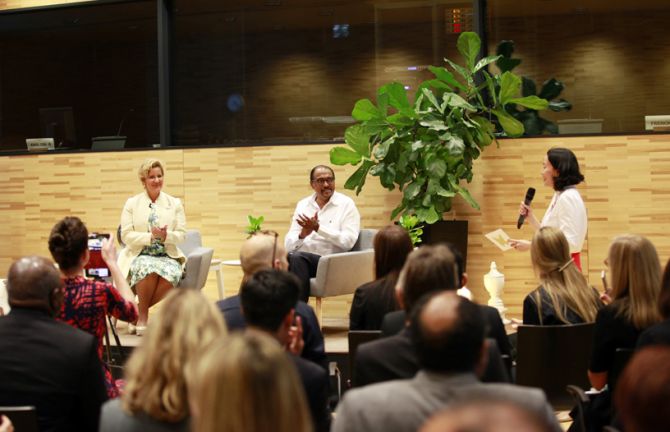
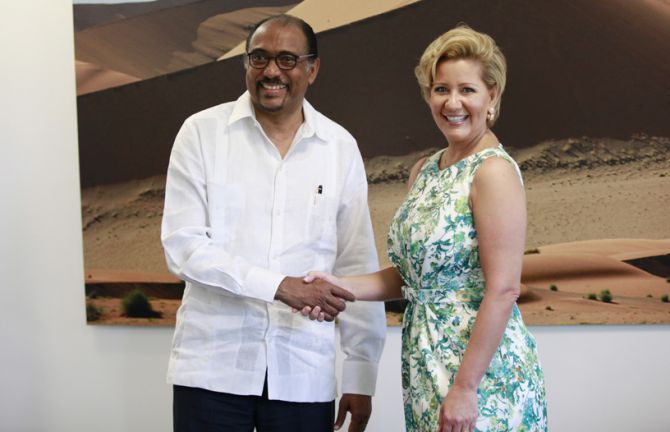
Update
UNAIDS welcomes First Lady of Panama on visit to UNAIDS headquarters
25 May 2016
25 May 2016 25 May 2016The Executive Director of UNAIDS, Michel Sidibé, welcomed Lorena Castillo de Varela, First Lady of Panama, to UNAIDS headquarters on 24 May. During their meeting, they reviewed Ms Castillo’s achievements since being named UNAIDS Special Ambassador for AIDS in Latin America in November 2015.
In the past six months, Ms Castillo has tirelessly promoted zero discrimination throughout Panama by engaging all government departments in a national campaign and travelling around the country, meeting with communities most affected by HIV in order to learn about and raise awareness of the impact of discrimination on people’s lives. She has also been advocating for access to sexual and reproductive health and rights services for adolescents, particularly adolescent girls.
During her visit to UNAIDS, Mr Sidibé commended the First Lady’s work as a compassionate and courageous leader and an extraordinary champion of rights in Latin America and beyond.
Ms Castillo thanked UNAIDS for its support and reiterated her commitment to focus on empowering young women and girls, HIV treatment and prevention for all and achieving zero discrimination.
Quotes
“We are all equal and I want to give a voice to the voiceless.”
“Lorena Castillo’s personal commitment to zero discrimination is impressive. Everywhere she goes she advocates for a people-centred approach.”
Related

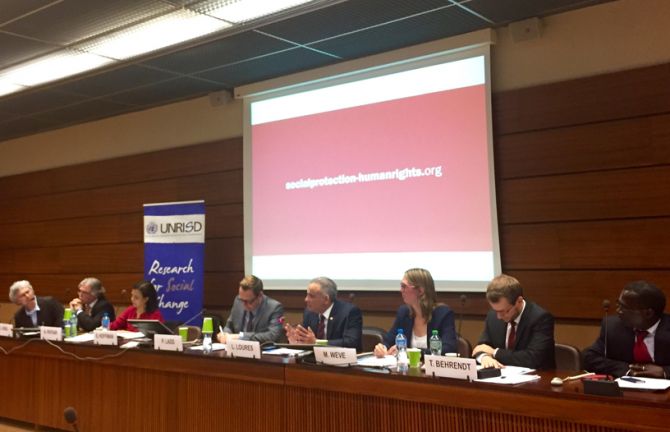
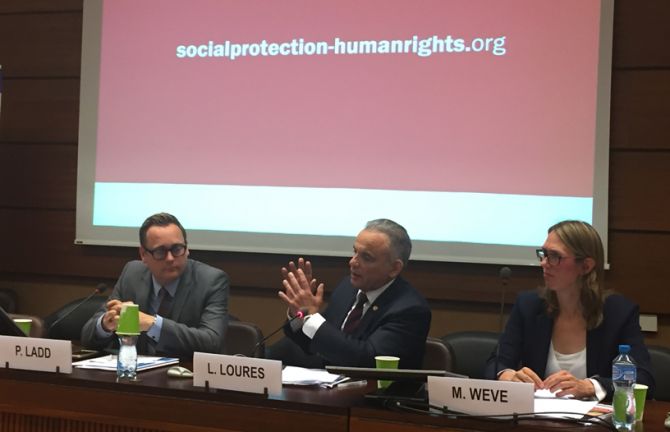
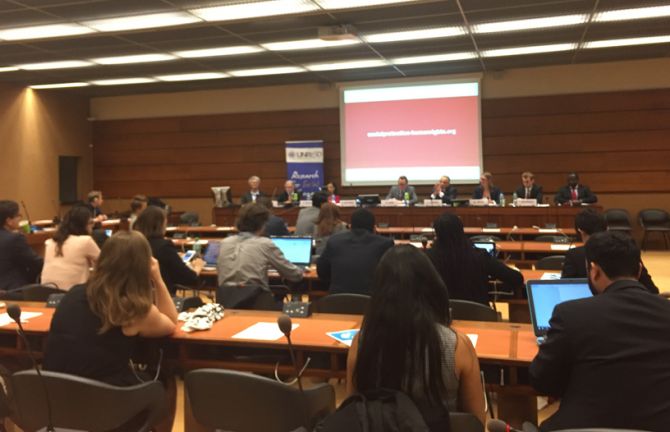
Update
Addressing the social and structural drivers of HIV
27 May 2016
27 May 2016 27 May 2016Increasing the use of social protection services towards ending the AIDS epidemic was the topic of discussion at an event held on 24 May on the margins of the 69th session of the World Health Assembly, held in Geneva, Switzerland.
Organized by UNAIDS, the United Nations Research Institute for Social Development and the International Labour Organization (ILO), the event brought together senior government, United Nations and civil society representatives to exchange views on the importance of social protection services in HIV prevention, treatment and care.
Speaking at the session, Luiz Loures, Deputy Executive Director of UNAIDS, said that 2016 is a critical year in the mission to end the AIDS epidemic by 2030. That goal cannot be met, he warned, unless social and structural drivers of HIV are addressed.
He added that people living with, at risk and most affected by HIV are vulnerable and at higher risk of HIV infection because of the social determinants of HIV—poverty, inequality and discrimination. “Social protection—ranging from social insurance to social assistance—is a game-changer that we must invest in to end the AIDS epidemic,” Mr Loures said.
Paul Ladd, UNRISD Director, said, “Let us make the next five years the years when we ensure that every person living with, at risk of and most affected by HIV in need of social protection is able to access it. Only then are we going to be on course to end AIDS by 2030.”
Thorsten Behrendt, ILO Health Policy Specialist, emphasized that, to end the AIDS epidemic by 2030, it will be necessary to provide both access to needed services and medicine, as well as basic income security. Moving from charity to rights will be crucial and requires the development and implementation of inclusive legislation to respond to poverty, exclusion and stigmatization, and at the same time empower people living with, at risk of and affected by HIV.
Social protection can also empower communities left behind, such as older people, to achieve a life of dignity free from poverty, said Stefan Hofmann, Director of Kwa Wazee, Switzerland. He added that, for programmes to succeed, it is important to take into consideration the family and community system on which most vulnerable people depend.
Martine Weve, Senior Policy Advisor on Livelihoods and HIV at STOP AIDS Now!, emphasized the key role support groups of people living with HIV have in increasing access to social protection services for their members.
According to Charles King, Chief Executive Officer of Housing Works, a dollar spent on HIV treatment that does not lead to viral suppression is a dollar wasted. He said subsidized housing for homeless people and people who use drugs are critical for achieving viral suppression.
Archana Patkar, of the Water Supply and Sanitation Collaborative Council, said people living with HIV who lack access to clean water and sanitation are more vulnerable to diarrheal diseases linked to morbidity and mortality. Removing stigma and discrimination and ensuring they have adequate access is key to saving lives.
Related

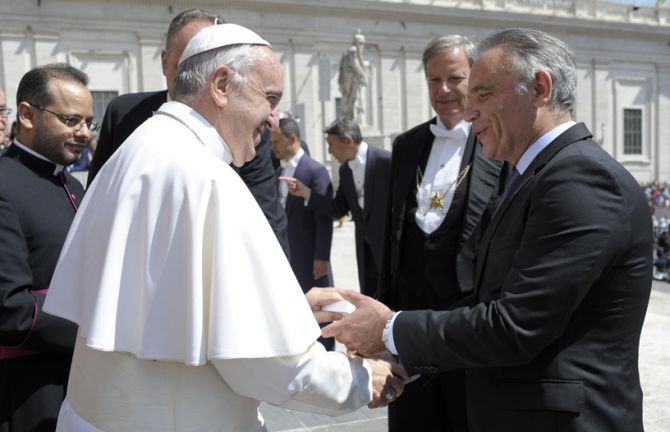
Update
Pope Francis urges continued dialogue to widen access to testing and treatment services
27 May 2016
27 May 2016 27 May 2016A meeting has been held at the Vatican to finalize a road map to improve access to HIV treatment for children. The meeting, held on 16 and 17 May, was a follow-up to an earlier meeting in April that explored ways to provide greater access to testing and treatment services for diseases such as HIV, tuberculosis and hepatitis.
Both meetings were hosted by Cardinal Peter Turkson, President of the Pontifical Council for Justice and Peace. Participants included representatives of national governments, faith-based organizations and people living with HIV, UNAIDS Deputy Executive Director Luiz Loures and the United States Global AIDS Coordinator, Ambassador Deborah Birx.
The road map will be presented at the United Nations General Assembly High-Level Meeting on Ending AIDS, to be held in New York, United States of America, from 8 to 10 June.
Quotes
“Scientific research has increased the possibilities for prevention and care; it has discovered therapies to treat a wide variety of diseases. You have also worked for this most worthy commitment: to respond to the needs and hopes of the sick throughout the world … Let the dialogue continue until we find the will, the technical expertise, the resources and the methods that provide access to diagnosis and treatment available to all, and not simply to a privileged few for … there is no human life that is qualitatively more significant than another.”
Related
 Government ensures continuity of treatment in Malawi
Government ensures continuity of treatment in Malawi

10 February 2025

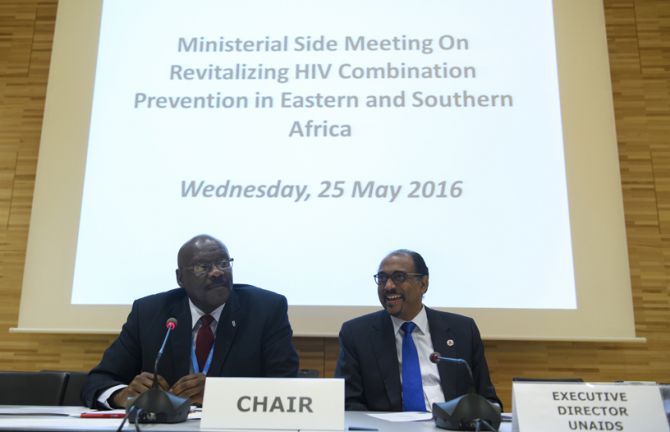
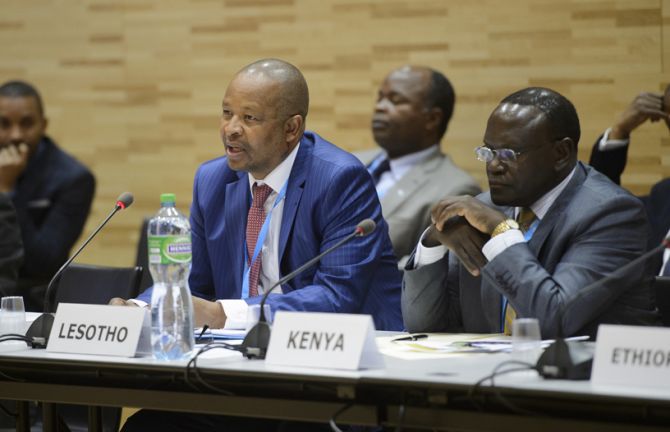
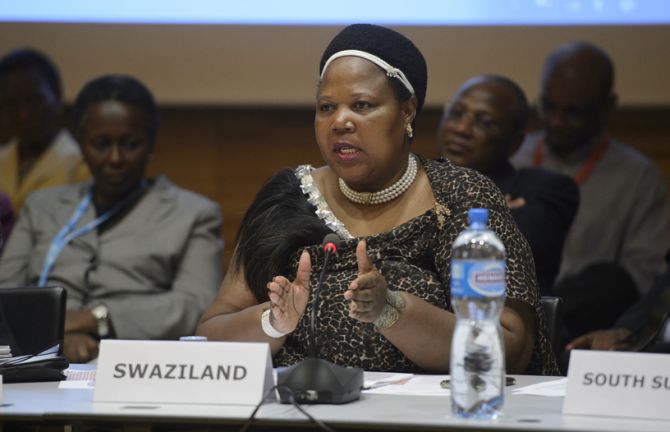
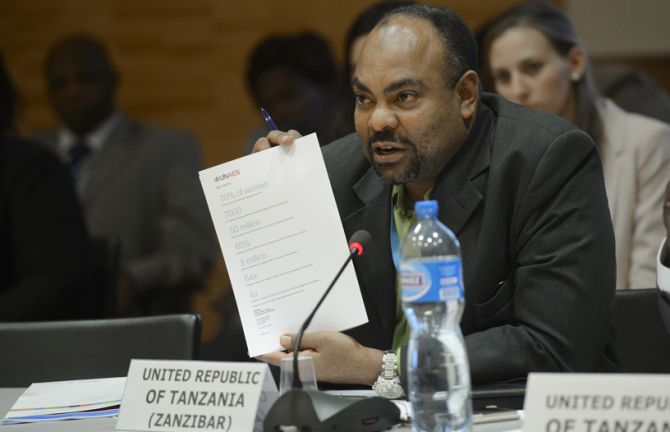
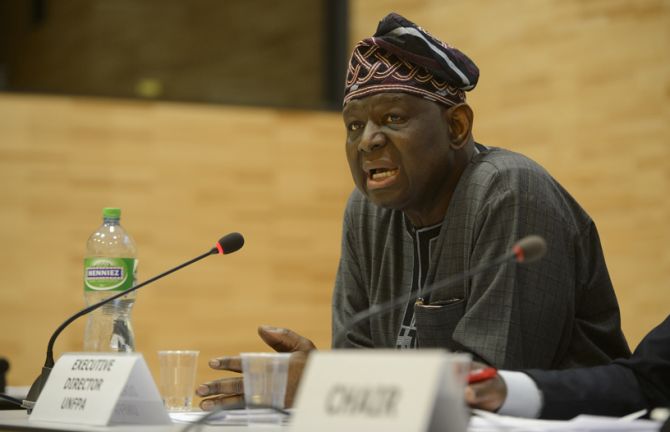
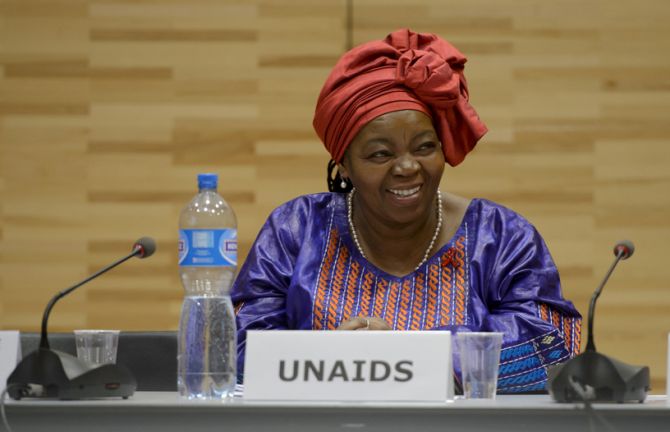
Update
Ministers of health call for revitalizing HIV prevention in eastern and southern Africa
26 May 2016
26 May 2016 26 May 2016At a high-level ministerial meeting convened by the Minister of Health of Zimbabwe, David Parirenyatwa, in partnership with UNAIDS, more than 11 ministers of health from eastern and southern Africa called for both policy and programmatic action in order to revitalize HIV prevention, with a continued focus on the scale-up of HIV treatment. The meeting took place at UNAIDS headquarters in Geneva, Switzerland, on 25 May, on the sidelines of the 69th session of the World Health Assembly.
The ministers called for renewed commitment and accountability on HIV prevention by countries in eastern and southern Africa. They noted that increased investment in HIV prevention, in particular for primary prevention at the local level, is required. The ministers committed to further scaling up effective combination prevention packages and launching a regional leadership platform with both health and non-health sector leaders to drive the agenda on revitalizing HIV prevention in the region.
Countries in eastern and southern Africa have made progress in reducing new HIV infections among adults, from 1.3 million new HIV infections in 2000 to 840 000 in 2014. However, there were 100 000 more new HIV infections in 2014 among females 15 years and older than among their male counterparts.
The participants also included representatives of the Southern African Development Community, the East African Community, United Nations agencies and development partners.
Quotes
“In order to reduce new HIV infections, there is a need to change the magnitude of investment for HIV prevention—we must invest at least a quarter on prevention.”
“We must close the tap of new HIV infections. We know HIV prevention is cheaper and proven to work. If we do it holistically, it will work. To do that, we really need to refocus and revitalize HIV prevention.”
"This call for action on revitalizing HIV prevention is timely. We cannot address HIV in isolation, and we need to work together as a region.”
"The Sustainable Development Goals give us a platform to deliver services based on rights, inclusiveness, universality and ensuring that no one is left behind. So let's do what we have to do on HIV prevention in countries."
Related

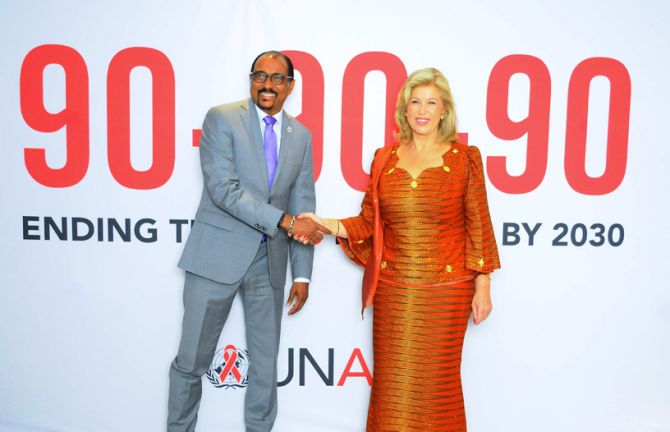
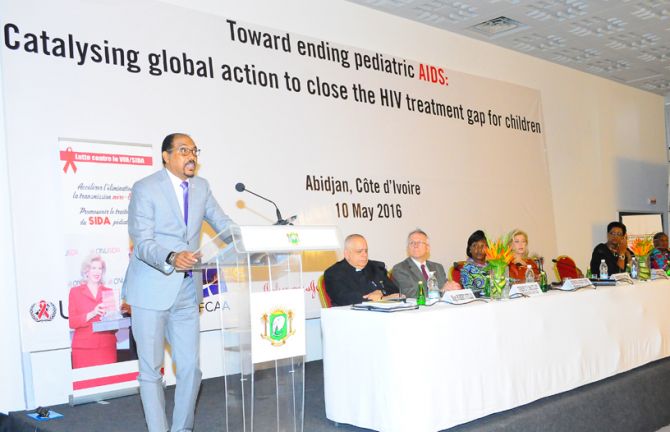
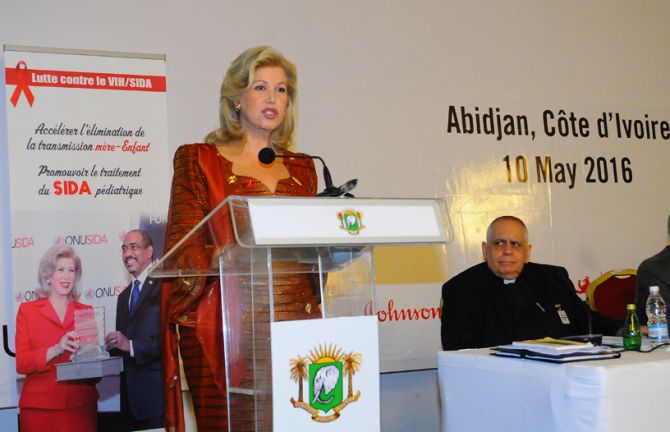
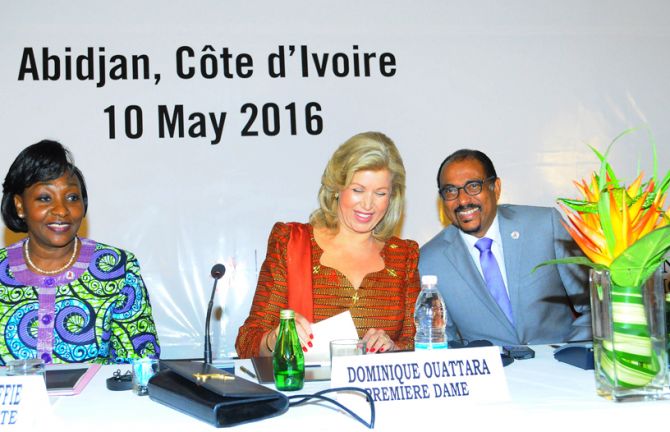
Update
African ministers call for global effort to end paediatric AIDS
10 May 2016
10 May 2016 10 May 2016African ministers of health called on the international community to make ending the paediatric AIDS epidemic a global political priority. Meeting in Abidjan, Côte d’Ivoire, on 10 May, dignitaries called for the Political Declaration on Ending AIDS, to be agreed upon at the upcoming United Nations General Assembly High-Level Meeting on Ending AIDS, to include targets to scale up prevention of mother-to-child transmission of HIV services and paediatric HIV testing and treatment.
Participants included 11 national ministers, as well as deputy ministers and senior HIV programme officials from across Africa, which is home to nearly 90% of all children living with HIV.
In 2014, 2.6 million children were living with HIV and 32% had access to antiretroviral therapy. Without treatment, half of all children living with HIV will die before they are two years old.
“Ending paediatric AIDS requires action at two levels,” said the First Lady of Côte d’Ivoire, Dominique Ouattara, UNAIDS Special Ambassador for the Elimination of Mother-to-Child Transmission and the Promotion of Paediatric Treatment for HIV. “On the one hand, we must prevent new HIV infections among children, and, on the other hand, we must provide treatment and care to all children who are living with HIV.”
Continued progress in preventing new HIV infections among children has been made by ensuring all pregnant women are tested for HIV and women living with HIV receive treatment. This has established a strong foundation for ending paediatric AIDS. But to make it a thing of the past, substantially better results are needed across the HIV treatment cascade for children.
UNAIDS projects that it is possible to end the epidemic of paediatric AIDS by 2020 if prevention and treatment targets are met by 2018. These include reaching 95% treatment coverage for both pregnant women and children living with HIV.
Recent trends point towards the feasibility of achieving these targets. Major gains have been made in providing antiretroviral medicines to pregnant women living with HIV to prevent transmission of HIV to their babies. From 2010 to 2014, new HIV infections among children dropped by 58%. In the same period, HIV treatment coverage among children living with HIV more than doubled.
However, more needs to be done to ensure that no child is left behind. “Today we have effective treatment regimens, yet how many children are still dying in the age of antiretroviral therapy?,” asked Jeanne Gapiya Niyonzima, president of the Burundi Association Nationale de Soutien aux Séropositifs et aux Malades du SIDA and mother of a child who died of AIDS-related causes at 18 months of age.
“This is a question of social justice, a question of equality,” said UNAIDS Executive Director Michel Sidibé. “We have the opportunity to have a Political Declaration on Ending AIDS from the United Nations General Assembly High-Level Meeting on Ending AIDS to help us set concrete objectives so that treatment becomes universal for everyone, wherever they find themselves.”
The African ministers attending the Abidjan meeting called for the Political Declaration on Ending AIDS to include clear targets to scale up prevention and treatment services in order to end paediatric AIDS. To achieve these targets, the ministers endorsed the immediate front-loading of resources for paediatric HIV treatment and the elimination of mother-to-child transmission of HIV.
Scientific developments have the potential to dramatically improve treatment outcomes for children. Ministers noted the importance of fully leveraging and scaling up innovative tools, including point-of-care technologies for early infant diagnosis, paediatric treatment regimens recommended by the World Health Organization and family-centred service delivery approaches that improve retention in care and treatment adherence.
Ministers called for UNAIDS to coordinate initiatives on paediatric HIV treatment across all sectors. “We need to strengthen cooperation among stakeholders to get better results for children,” said Juliet Kavetuna, Deputy Minister of Health and Social Services of Namibia. “If we work in silos, we will never achieve our goal.”
The meeting generated considerable optimism regarding the potential to meet the 2018 targets for children. “We know what we have to do,” said David Parirenyatwa, Zimbabwe’s Minister of Health and Child Care. “The key is to do it in a systematic way and ensure that it is well-funded.”
Uganda’s Minister of State for Primary Health Care, Sarah Opendi, said, “Working together, we can end the AIDS epidemic among children, and also among adults.”
Prior to the closing remarks by the First Lady of Côte d’Ivoire, Mr Sidibé was presented with the Grand Officier de l'Ordre National de la République de Côte d'Ivoire, in recognition of his global leadership on behalf of children affected by HIV. In accepting the award, Mr Sidibé encouraged all participants to work towards the goal of ending paediatric AIDS.
Leading donors, programme implementers and civil society involved in paediatric HIV treatment, as well as private industry, also attended the ministerial meeting. The event was convened by UNAIDS, the Government of Côte d’Ivoire, ELMA Philanthropies, Funders Concerned About AIDS, the Children’s Investment Fund Foundation, Johnson & Johnson and Luxembourg. More than 150 people from 34 countries participated.




